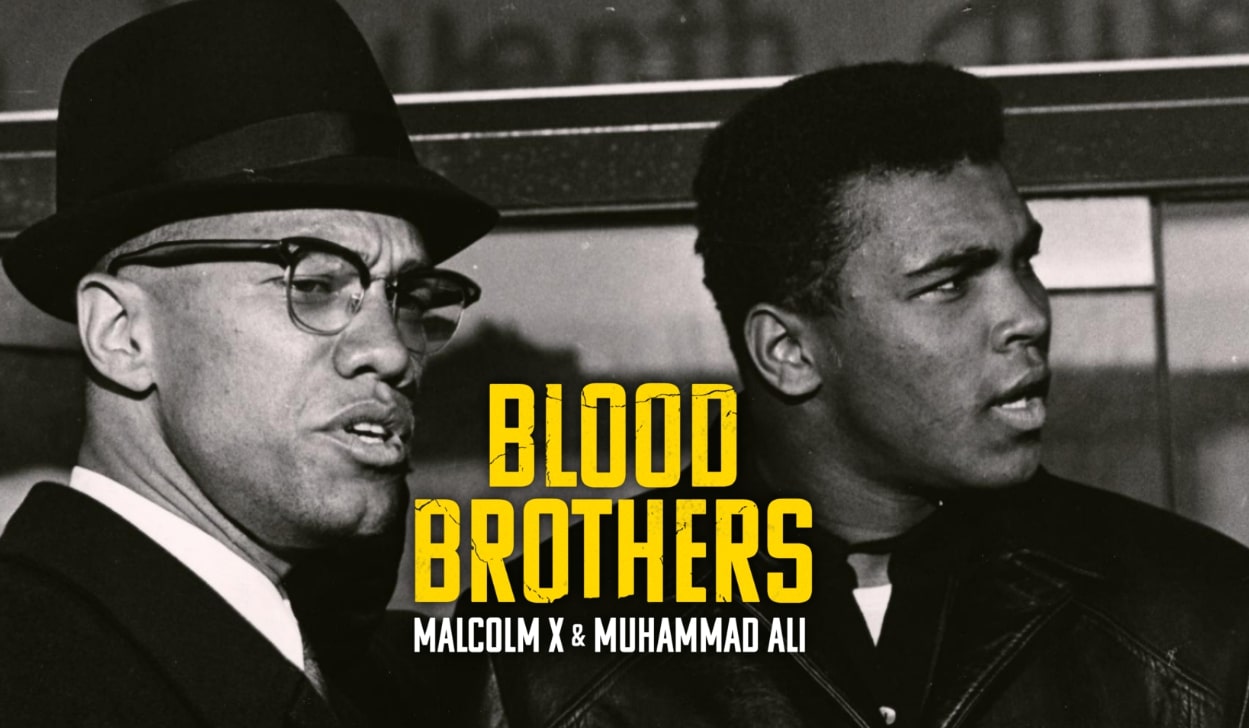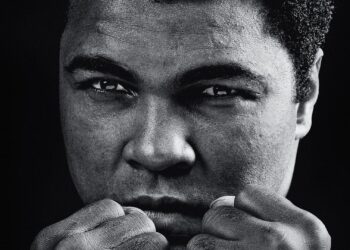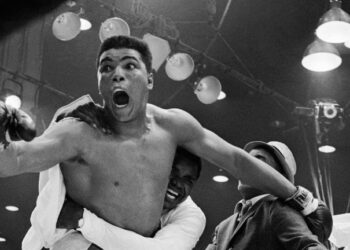By: Zachary Draves
The recent Netflix documentary Blood Brothers tells the story of the tight bond and eventual fallout between Muhammad Ali and Malcolm X.

(Courtesy: Youtube)
Two black men perfectly defined their era as they both navigated the treacherous waters of an American society that sought to render them into submission as they both posed threats to the white established order.

(Courtesy: Youtube)
Both men aligned in their quest for black liberation and each defined their blackness on their own terms with the Honorable Elijah Muhammad of the Nation of Islam as their guide.

(Courtesy: Pintrest)
The film perfectly encapsulates their respective journeys that culminated in them meeting in the early 1960s at what was a critical turning point in their lives.
Malcolm already been the head spokesperson for the Nation of Islam since 1952 and captivated audiences with his charismatic and aggressive renouncement of white supremacy and strongly advocating for a black nationalist vision that included a separation between the races.
Ali, then Cassius Clay, was coming off winning a gold medal at the 1960 Olympics in Rome and subsequently shunned from his hometown of Louisville, Kentucky that was very much under the boot of Jim Crow, and the hometown Olympic hero was denied service at a local restaurant even while donning his gold medal.
The legend goes that in an act of righteous anger he took his gold medal and threw it in the river.
It was during this time that Clay and Malcolm were always seen in public together and in the lead up to the heavyweight title fight with Sonny Liston in February 1964 that suspicion was that Clay was becoming a Black Muslim, something that became true after he defeated Liston in eight rounds to become the heavyweight champion at age 22.

(Courtesy: Rare Historical Photos)
The day after, the new champ changed his name to Muhammad Ali and the rest is history.

(Courtesy: Chicago Tribune)
As Ali became the most famous Black Muslim his relationship with Malcolm started to fracture as Malcolm started to become disillusioned with the Nation of Islam after it was revealed that Elijah Muhammad had multiple affairs and children with his secretaries.
Malcolm left the Nation, made his famous pilgrimage to Mecca, and changed the course of his message that sought to include white allies and civil rights leaders like Dr. Martin Luther King Jr. while also maintaining black nationalist sensibilities.
As the film shows, Ali and Malcolm crossed paths during an unrelated trip to Africa where Ali confronted Malcolm on his denouncement of Elijah Muhammad and their friendship was officially over.
On February 22, 1965, Malcolm was assassinated while giving a speech at the Audubon Ballroom in New York.
Ali would later say that it was one of his greatest regrets that he didn’t help to mend wounds with Malcolm.
These two men will forever be linked to one another as they embodied an unapologetic blackness.

(Courtesy: The Undefeated)
To get some insight into their relationship and the documentary itself, I spoke with legendary sportswriter Robert Lipsyte, who extensively covered Ali for the New York Times and was featured in the documentary.
How would you assess the relationship between Ali and Malcolm in the context of the early to mid 1960’s?
The recent book and documentary, “Blood Brothers,” are the best sources for this. Malcolm seemed to have had genuine affection for Cassius – hard not to – while his fraying relationship with Elijah and the Nation made it harder and harder to choose between warning Cassius off and leaving him alone in his growing dependence on Elijah and the group. Malcolm was clearly the most coherent and intelligent spokesman for the Nation, and a lot of Ali’s racial and political education came from Malcolm. It felt like a teacher-pupil as well as a big brother-little brother. Once Malcolm split with the Muslims, Ali had to make a choice – it was the wrong one he later admitted to me – but understandable. He felt he needed the Nation’s support, and he was afraid of them.
If Malcolm wasn’t there to mentor Ali, do you think Ali would have become the activist athlete that he became?
Malcolm was incredibly important to Ali’s education, but there were other forces at work, including the times and, later, the college students with whom he interacted when he couldn’t fight and needed to make money doing college appearances. Ali was a quick learner, a sponge for ideas and information.
During the lead-up to the first Sonny Liston fight that you covered, how much access did you get to see the nature of Ali and Malcolm’s relationship?
I didn’t get a good sense of them together until after the first Liston fight. I met Malcolm first – as a reporter covering a demonstration, and later in private in-person and phone interviews. At this time Cassius was keeping his relationship with Malcolm quiet.
What do you hope this new documentary does?
I hope the doc sets Ali in the context of his times and shows how controversial he was. Why the government felt it needed to silence him, why he was regarded as dangerous, and how he indeed was in making people brave. Too much of Ali’s worship is about him as a silent, safe beatific figure.


 NFL
NFL





